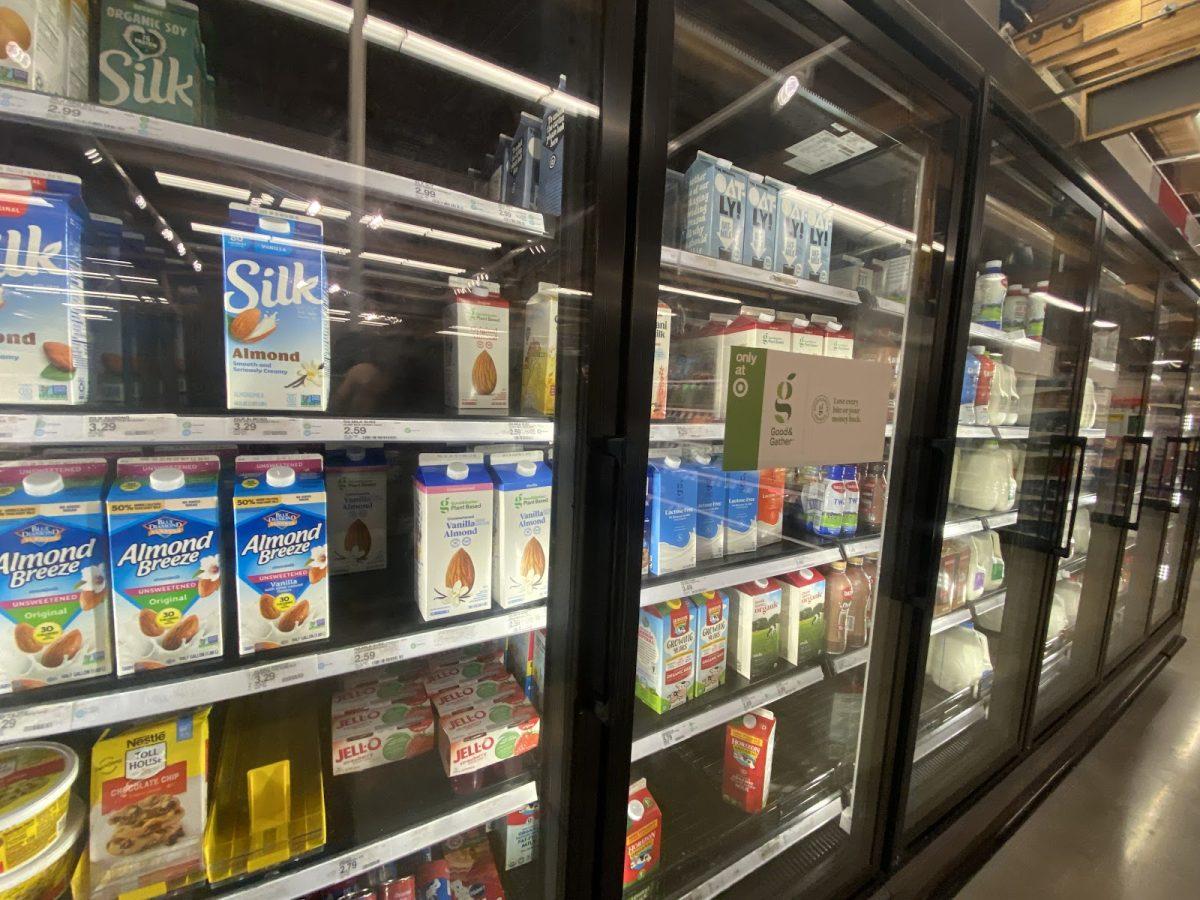
Whether it’s oat, almond, soy, or another alternative milk, any coffee shop customer who regularly opts for dairy-free drinks is familiar with the additional costs. From 50 cents to $1.50, a majority of coffee shops have some version of an added price for dairy alternatives. Near Franklin High School, Rain or Shine Coffee House and Common Grounds Coffeehouse both charge 75 cents for non-dairy milk. At Bipartisan Cafe it costs $1.25 and Marino Cafe charges $1.00. For chains such as Starbucks and Dutch Bros, it depends on the location. Though there are reasons for the upcharge, the fact that a dietary restriction makes an already pricey drink more expensive can be frustrating. Local coffee shops vary in prices and reasoning, but is the upcharge exploitation, or is it necessary for them to make enough profit to keep the businesses we love running?
The largest argument for the extra cost of dairy-free milk is that manufacturing and store prices for it are higher than those of cow’s milk. “If it costs more to buy/produce, it should cost more [for the customer],” one Franklin student says. According to Common Grounds and Rain or Shine, it does: even the bulk prices they pay for dairy-free milk are significantly higher than that of dairy milk. Common Grounds pays around $3.69 for a gallon of cow’s milk and around $15.50 for oat— a significant difference. Oatly, an oatmilk company, explains that this is because of how large the scale of the dairy industry is compared to the oatmilk industry. Consequently, oatmilk, and many other dairy alternatives, cost more to manufacture, and in turn, cost more to buy off the shelves.
The high prices of dairy-free milk in stores is Common Grounds’ reason for an added price. They offer oat, soy, almond, hemp, and coconut milk, which all cost an extra 75 cents. “We offer a discount on dairy milk because plant-based milks are more than 4 times more expensive,” states a representative from Common Grounds. “Coffee shops that charge the same are not offering a discount.”
As Rain or Shine explains, the price it costs to buy the milk alternatives makes it so they have to charge customers more. If they don’t, they’ll lose money and eventually go out of business. It seems that independent coffee shops such as Common Grounds and Rain or Shine may be unable to eliminate any added charges if they want to make a profit. By adding an upcharge, they are able to gain this profit without increasing the already expensive price of an average coffee.
There are, however, some coffee shops that have successfully figured out a way to eliminate the added price. Stumptown Coffee, a locally founded coffee roaster, has a different policy. “We offer soy, almond, and oat at no extra charge,” says Sarah Johnson, Stumptown’s West Coast Area Manager for retail. They do this because similarly to many of their customers, numerous Stumptown employees prefer dairy-free milk as well. According to Johnson, they believe that “people shouldn’t have to pay extra to get the milk that they want.” Stumptown is so dedicated to dairy-free milk that starting in 2023, their default milk option is oatmilk. Now, instead of a drink automatically having dairy when ordered, their response to a customer ordering a milk-based drink will be “Is oatmilk okay?” As Johnson explains, both of these policies send the message of how important the use of dairy-free milk is to them. The elimination of the upcharge has been in place for at least a year, and has made profit decrease slightly, but not in a significant way. Around 65% of their customers order oatmilk. They have not needed to increase baseline prices with this policy.
This may be because Stumptown is larger than many other local shops, allowing them to change their policies without as big an impact. Other than at fully vegan shops, not adding an additional charge is not very common. However, Guilder Cafe, located inside Powell’s City of Books, and Jamba Juice (a non-coffee drink place) do not charge for dairy alternatives.
Though the upcharge is frustrating, it is logical for many coffee shops, especially independent ones. Many dairy-free customers do seem to understand it, despite still wishing it was eliminated. “It makes sense cause it’s more expensive, but it’s annoying,” says one dairy-free drinker. Another described it as a double-edged sword—that on one side it feels exploitative as many people who order dairy-free milk don’t have another choice—but on the other hand, it makes sense that it’s necessary for independent shops.
As many customers who order dairy-free milk are unable to drink dairy, eliminating extra charges for alternative milk would be much appreciated. As seen from Stumptown’s experience, this change would be unlikely to make larger shops go out of business. But for independent shops, the price difference between dairy-free and dairy milk is too much. Of course, the ideal solution is to switch away from an upcharge altogether, but understandably it is currently not a possibility for many local shops. Though it would be nice not to have a higher price for an already expensive drink, it would be devastating to lose the independent businesses we love.


































